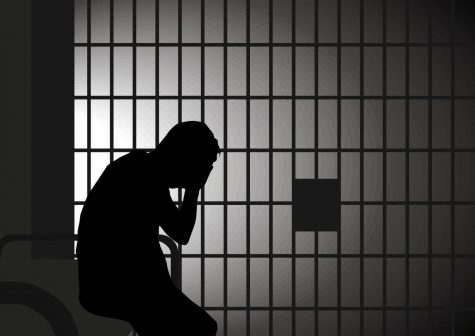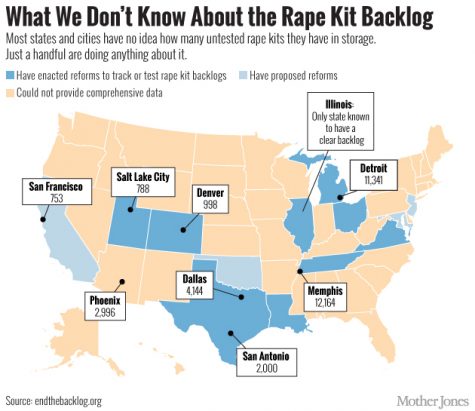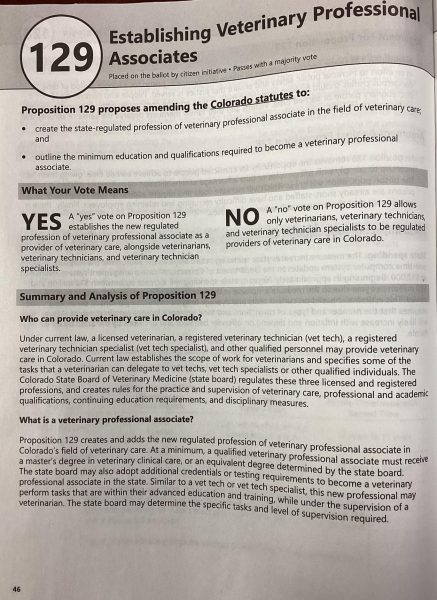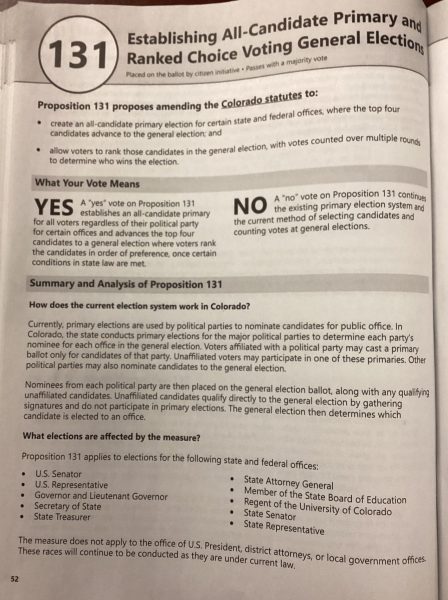Student Opinion: Justice Not Served For Rape Victims
An Evaluation Of Solutions To End The Backlog Of Rape Kits
Image via Margaret Burin/ABC News
When Helena was only 17, she was abducted at knifepoint from a car wash.
For several hours and at multiple locations, she was repeatedly sexually assaulted by an older man who threatened her and her family with violence if she ever told anyone about this attack. She was grateful when she noticed a police officer heading in her direction and immediately had the officer take her to a hospital to have evidence collected.
Helena explains part of the tiring process, saying she “disclosed every last humiliating detail of my assault to indifferent detectives.” She waited and waited for the results to come back, but instead lived through years of fear and confusion.
Over a decade after her attack, Helena connected with a rape victim’s advocate and finally received her long-awaited results; her attacker was already serving 25 years for a separate assault. She was then able to start the process of trying her attacker, in hopes of gaining justice for herself and other survivors and preventing unnecessary crimes in the future.
This story addresses the severe problem of backlogged rape kits in America. Hundreds of thousands of rape kits, spanning decades, have not been processed. Untested kits not only affect the lives and rights of victims but can also lead to additional violent assaults by perpetrators who were never prosecuted.
Victims often feel guilt and fear for years after being attacked, always wondering if their attackers are still on the streets waiting for another opportunity to inflict violence on an unsuspecting man or woman.
Some individuals have sat in cells with the knowledge that they were falsely convicted. Their key to freedom is contained in a kit that may never be opened. These adverse effects can be diminished if we work towards solutions to solve the rape kit problem.

Exoneration can take decades, with evidence languishing in a backlogged kit.
Some states have made strides toward solving the problem by reworking legislature and providing new policies to support victims’ rights by reducing the number of untested rape kits. In Texas, a legislative change will include crowdfunding at DMV’s to help raise funds to process an abundant amount of expensive rape kits. Along with Texas, Connecticut is working towards enacting a tracking system to log rape kits from the date of creation to completion.
At the federal level, Donald Trump recently signed into law the Justice Served Act and the Sexual Assault Forensic Evidence Reporting (SAFER) bill, which will provide federal funding to law enforcement agencies to finish testing on old and new kits and reauthorize existing programs and funding related to this topic. To help end the backlog of rape kits in America, we must sign new laws regarding the processing of rape kits and bring this problem to the attention of the public to gain support in resolving this issue. Crowdfunding, tracking technologies and legislation, including SAFER and the Justice Served Act, are successful ways to back this resolution.
Many contributing factors have led to the problem of backlogged rape kits in America. There are currently no concrete policies in law enforcement agencies that provide a guideline for testing. A lack of policies allows officers to “have discretion over whether to send a kit for analysis.”
By testing all kits, from known and unknown suspects, we can link serial offenders to other crimes and innocent suspects can be exonerated. Not only do law enforcement agencies need to be updated, in reference to their policies, but crime labs need to be updated as well. Labs have no strict rules regulating these kits. In the United States, we have no tracking on the creation of rape kits. We are not able to estimate the total amount of kits because of how poorly these kits are treated.

This image presents a clear picture of the lack of regulation for rape kits, with many states unable to provide any data on their untested kits.
There is also a deficiency of training with officers and detectives. These officials are not knowledgeable of the trauma victims endure. This lack of understanding is described earlier in Helena’s story, when she describes her detective as “indifferent,” lacking empathy for her situation.
When training in trauma, offender patterns and the importance of DNA is incomplete, a solution cannot be effectively enforced. One of the biggest contributing factors is a lack of funds for testing. A single rape kit can cost between $1,000 and $1,500 to test.
DNA technologies and forensics continue to advance in society, but no additional funds are given for these advancements. The combination of these factors leads to a grave problem with harmful consequences. Leaving rape kits untested neglects the safety of cities all over the country. Offenders can commit crimes with no fear of prosecution, leading to violent criminal acts that could have been prevented.
Also, falsely accused individuals will remain in prison for crimes they didn’t commit. DNA from rape kits could prove that these individuals are not guilty and lead to exonerations. Victims are left to feel as if justice is not valued and their rights aren’t significant. An absence of empathy and care can take a toll on the victim’s mental health, leading to anxiety and depression due to the trauma from past assaults and the disregard for their case.
When evaluating the effectiveness of the previously proposed solutions, we must look at some essential criteria. These criteria include cost-effectiveness, success rates and the difficulty in enacting the solution. The first solution was proposed by Texas state representative, Victoria Neave. Her bill would ask for donations when individuals are applying for a driver’s license. This solution would be cost-effective, as it is not implementing costly technology or strategies.
States such as New York, Pennsylvania, Michigan, and New Mexico have all implemented similar bills that have proved successful by generating enough donations to have up to 10,000 kits tested. This solution would not be complicated, with contributions being voluntary. Neave states that “it could generate an estimated $1 million a year” to help in testing, which would be a huge supplement to the funds already provided by the state.
The second solution is a tracking system being created by groups in Connecticut. This system would assign a number to each kit, where it will then be logged from hospital to crime labs, ensuring kits are being processed. This solution would be costly as it would require software being installed in hospitals, law enforcement agencies and crime labs to track the kits and the monthly cost for running the software would be roughly $600 a month annually. I believe this solution would have positive results because there would be strict rules and regulations in place to ensure the kits are moving correctly through the system. Installation would be difficult, but the process would be simple as the software would do all the tracking.

The vast majority of rapists will never suffer any consequences for their actions. Taking care of our rapekit backlog will help correct this injustice.
The third solution is federal laws being signed to support the testing of rape kits. The SAFER bill and the Justice Served Act, presented by U.S. Senator Dean Heller, would provide federal funding for testing and strengthen existing programs that support the backlog. This solution may be considered costly, due to the government providing funds for all 50 states. It would have a high success rate because states would have a significant amount of funds to work through the backlogged kits. The money would prove to be the most difficult challenge as it is hard to provide additional funds for testing when so much money is already dedicated to various state costs.
Out of the proposed solutions, I believe the tracking system would be most successful in solving the backlog of rape kits. It is reasonable, as far as costs and difficulties. It would also allow strict regulation, with consequences and penalties if the system is not upheld, encouraging lab techs and officers to work proactively.
America is currently facing a dangerous problem with many adverse consequences. The issue of backlogged rape kits needs public support and recognition to be resolved. Solutions such as crowdfunding, tracking systems and federal bills, such as the Justice Served Act, could make a massive impact on the number of untested kits.
The most promising solution would be a national tracking system that would log all kits in America. This solution is practical concerning the cost and difficulties in implementing it. States would be able to afford the monthly fees for running software, and lab analysts and officers would take the kits more seriously if there were penalties and rules in place. Rules regarding processing would dramatically cut down on the backlog of rape kits by ensuring every single kit is completed, regardless of whether or not officers or lab techs deem it important.
The tracking system could help survivors like Helena live in peace; offenders would be put behind bars where they belong.








Ashley Russell • Dec 16, 2020 at 8:45 pm
Im supporting til the END & this publisher Adrianna I m so proud of you!
Susan Barry Blair • Oct 23, 2019 at 7:03 am
Such a well written informational article!